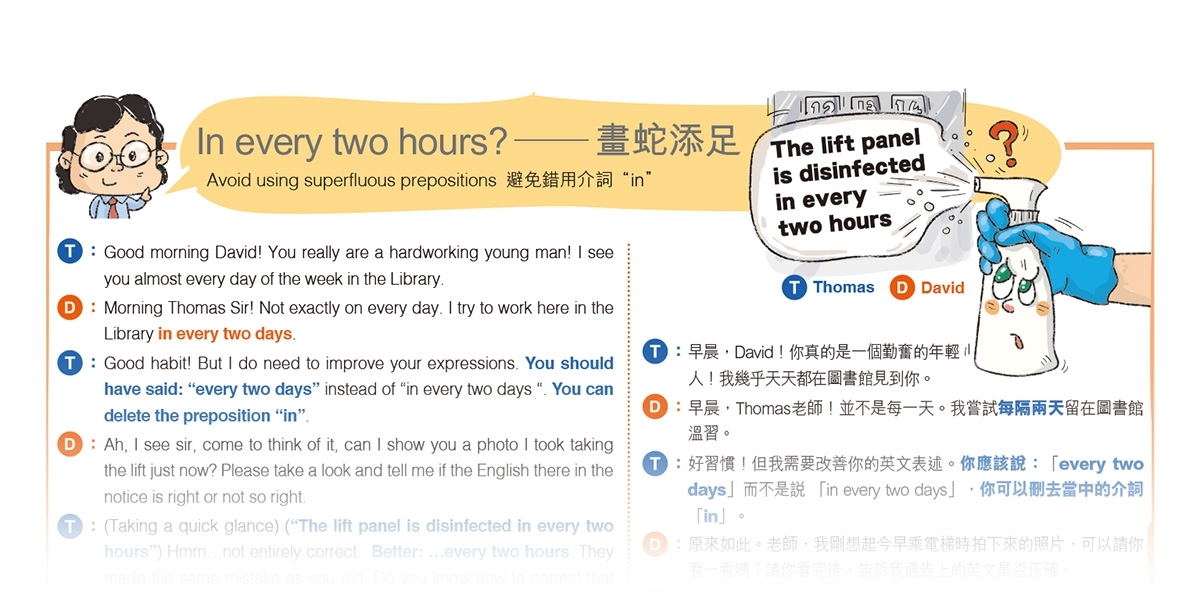昔日文章


中學文章
2023.03.12
喜樂中學-文章
Tragedy
During the school’s swimming gala, Tom had a tragedy. “Ow!” He yelled.
Our class was on a tour bus, heading west to the swimming centre. When we were on the bus, Tom was incredibly arrogant and disrespectful. “You all are losers! I’m the king and I’m the best!” It felt like I was on a bus with entitled toddlers who thought they‘re so good at English because they learnt how to spell “delicious”…
After an hour long trip from Kwun Tong to Tsuen Wan , our class entered the swimming centre as participants of the competition. “Oh my god!” There were around 2000 spectators, all staring at us. I immediately felt the pressure and was extremely stressed as I knew that a small mistake would make me embarrassed for hours. Tom on the other hand, was a different story. He was showing off his muscles to the crowd and telling the viewers how “big” his muscles were.
The swimming gala began! Everyone started to warm up while Tom was far behind, standing there. “You need to do warm-ups !” Tom’s coach said. “Shut your mouth!” Tom shouted, and just started to swim. After 10 minutes, Tom started to suffer from his leg cramps.
After Tom’s leg got better by laying on bed for over an hour, he decided to leave the swimming centre. It was probably because he feared being a total embarrassment to the audience, or that he’s actually injured. I’d pick the first option for sure.
About two hours later, the swimming gala has ended. I couldn’t have expected something better. “In third place, we got Malissa! And in second place…” I was filled with excitementat that moment, knowing it could be ANYONE. “We got… Ricky!” Still kind of sad for him because he was so close to first place though.” It was pretty surprising to hear that, as Ricky is the best swimmer in the class.
“And in FIRST place, we got Charles! Congratulations!”
As I heard that, I immediately went from excited to literally jumping off my seat and cheering. I couldn’t even imagine that happened. Oh, and I can show this off to Tom as well. Imagining his reaction, it would be hilarious.
2 days later, Tom came back with the only intention to ruin my mood. “Bet you lost” What he didn’t know is that I got a gold medal. After I showed him my medal, he was jealous and raging. He never changes.
Chau Cheuk Him Charles
St. Francis Xavier's School , Tsuen Wan 1B


Learning English with Thomas
2022.12.04
In every two hours? —— 畫蛇添足
Avoid using superfluous prepositions 避免錯用介詞“in”
T : Thomas D : David
T : Good morning David! You really are a hardworking young man! I see you almost every day of the week in the Library.
D : Morning Thomas Sir! Not exactly on every day. I try to work here in the Library in every two days.
T : Good habit! But I do need to improve your expressions. You should have said: “every two days” instead of “in every two days “. You can delete the preposition “in”.
D : Ah, I see sir, come to think of it, can I show you a photo I took taking the lift just now? Please take a look and tell me if the English there in the notice is right or not so right.
T : (Taking a quick glance) (“The lift panel is disinfected in every two hours”) Hmm…not entirely correct. Better: …every two hours. They made the same mistake as you did. Do you know how to correct that now?
D : Now I can, sir. It should be: “The lift panel is disinfected every two hours.” Is that right?
T : Haha! You certainly got it – learning fast and applying at once. (Teacher raising his thumb smilingly)
T : 早晨,David!你真的是一勤奮的年輕人!我幾乎天天都在圖書館見到你。
D : 早晨,Thomas老師!並不是每一天。我嘗試每隔兩天留在圖書館溫習。
T : 好習慣!但我需要改善你的英文表述。你應該說:「every two days」而不是說 「in every two days」,你可以刪去當中的介詞 「in」。
D : 原來如此。老師,我剛想起今早乘電梯時拍下來的照片,可以請你看一看嗎?請你看完後,告訴我通告上的英文是否正確。
T : (瞥了一眼)(「The lift panel is disinfected in every two hours」)嗯……這樣寫不完全正確,寫成「every two hours」較佳。 他們跟你一樣犯了相同的錯誤。你現在懂得如何修改嗎﹖
D : 老師,現在我懂了。這應該改為:「The lift panel is disinfected every two hours」,對嗎?
T : 哈哈,你果然是學以致用。(老師欣慰地豎起大姆指)


Stories Behind Popular Sayings
2022.05.01
May Day
As Labour Day on the 1st of May falls on Sunday this year, the Hong Kong Government has designated Monday, the 2nd of May, as a general holiday in substitution. What are the other names for Labour Day in the world? This special day is also known as the International Workers' Day or May Day.
May Day traditionally was an occasion for the celebration of the return of spring in Europe. In these ancient agricultural rituals, people would gather wildflowers and green branches, weave floral garlands and crown a May king and queen.
In the 19th century, May Day took on a new meaning. On the 1st of May, 1886, a group of workers in the USA started a campaign to demand an eight-hour working day. During that time, it was common for workers to work more than sixteen hours a day for very low pay.
In the 20th century, traditional May Day festivities declined in many countries because the 1st of May subsequently became an annual event honouring workers and the labour movement.
由於今年5 月1 日勞動節(Labour Day)為星期日,因此香港政府將5月2日星期一訂為補假。在世界上,Labour Day的其他名稱是甚麼?這個特殊的日子又被稱為International Workers' Day(國際工人日)或 May Day(五朔節)。
五朔節傳統上是歐洲慶祝春回大地的時節。在這些古老的農耕禮儀裡,人們會採集野花和青樹枝,編織花冠, 並為五月國王和王后戴上王冠。
在19世紀,May Day添了新的意義。1886年5月1日,美國一群工人展開了一場運動,要求每天工時為八小時。當時,工人一天工作超過16小時且工資非常低,這是常見的情況。
在20世紀,傳統的May Day 慶典在許多國家式微,因為5月1 日漸漸成為了一年一度向工人致敬並紀念勞工運動的盛事。


Stories Behind Popular Sayings
2020.11.06
Elephant in the room
By looking at the book entitled " An Elephant in the Living Room: A Leader's Guide for Helping Children of Alcoholics ", you might wonder whether the book is concerned about an elephant or children with alcoholic parents. The idiom " elephant in the (living) room " started to be widely used in the USA in the mid-1950s. It refers to a challenging problem or a controversial issue which everyone is aware of, but ignores or avoids because it causes embarrassment socially or politically.
The origin of the idiom is uncertain. One of the stories has nothing to do with the English language. In 1814, Ivan Krylov, a Russian writer, wrote a short story called " The Inquisitive Man ". In the story, a man who has spent three hours in a natural history museum tells his friend that he examines all sorts of animals and insects very closely. However, he fails to notice a giant elephant in the room.
What do you think the " elephant in the room " in Hong Kong society is ?
當你看見一本名為An Elephant in the Living Room: A Leader's Guide for Helping Children of Alcoholics的書籍時,你或會奇怪到底這本書是關於一隻大象還是關於酗酒父母的子女?Elephant in the (living) room這個習語於20世紀50年代中期在美國開始受到廣泛使用。它指的是一個具挑戰性的問題或具爭議性的議題,人人都覺察到這個問題卻忽視或迴避它,因為它在社會或政治方面引致令人尷尬難堪的情況。
這個習語的起源並不明確。其中一個故事與英語完全無關。1814年,俄羅斯作家伊萬・克雷洛夫(Ivan Krylov)撰寫了一個短篇故事,名為《充滿好奇心的男子》。在故事中,一個在自然歷史博物館消磨了三個小時的男子告訴朋友,他非常仔細地研究了各種各樣的動物和昆蟲。可是,他未能留意到在博物館的房間裡有一隻巨象。
你認為香港社會裡有哪些人們避而不談的棘手問題(elephant in the room)呢?
捐款支持公教報 http://kkp.org.hk/donation






